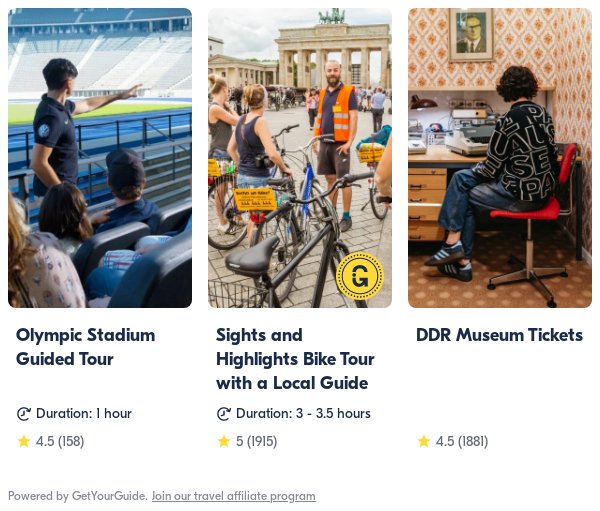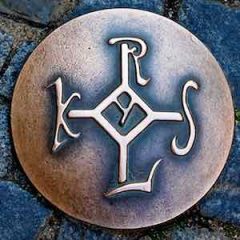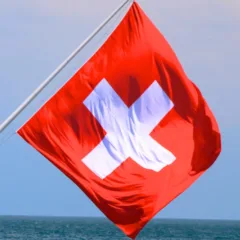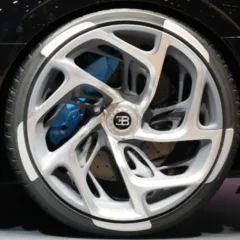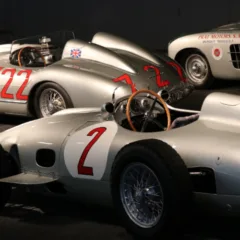The museums and exhibitions in the Humboldt Forum in the reconstructed Berlin Schloss opened in December 2020 with all museums open by the end of 2022.
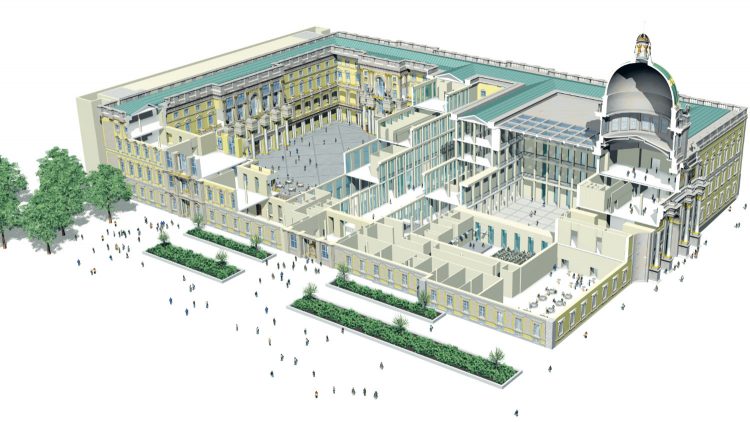
The Humboldt Forum in the rebuilt Berlin Palace finally opened to visitors on 17 December 2020. However, museums and exhibitions will open in phases with the Ethnological and Asian Art museums only opening from September 2021. The first exhibitions to open will cover the history of the Humboldt Forum and Berliner Schloss site and the Brothers Humboldt after who the complex is named. The Berlin Global and After Nature exhibitions will follow in January 2021. Time-slot ticket reservations will be essential — only available from December 2020.
Update 2024: New Berlin Museum Opening Hours
From 16 April 2024, several smaller museums will be closed on both Monday and Tuesday with shorter opening hours on many days. Opening hours for the Alte Nationalgalerie will be longer for much of the year, as the Caspar David Friedrich exhibition tickets are selling out fast, and also longer in summer 2024 for the top museums. See the latest Berlin museum opening hours for details.
Currently, time-slot reservations are essential only for the Caspar David Friedrich exhibition in the Alte Nationalgalerie (until 4 August 2024). However, it is sensible to book timeslots if available for the Alte Nationalgalerie, Gemäldegalerie, Neue Nationalgalerie, Neues Museum, and Das Panorama. (The Pergamon Museum itself is closed until 2027!) Timeslots are released only a few weeks in advance. Buy tickets and make reservations online at GetYourGuide or at SMB.
Online tickets for museums without timeslot reservations are skip-the-line — go directly to the entrance to scan the ticket. Many multiple-museum tickets and passes are again accepted, including Kulturforum, Museumsinsel, and the excellent value 3-day Berlin Museum Pass.
Humboldt Forum in Berlin
The Humboldt Forum is the name given to the reconstructed Berlin Palace on Museum Island in the heart of Berlin. The building mostly resembles the Baroque Schloss of the Hohenzollerns but the interior is completely modern.
Several institutions will share the Humboldt Forum but the Ethnological Museum, Asian Art Museum, the Humboldt University, and the Stadtmuseum Berlin (local history museum) have permanent exhibition spaces here.
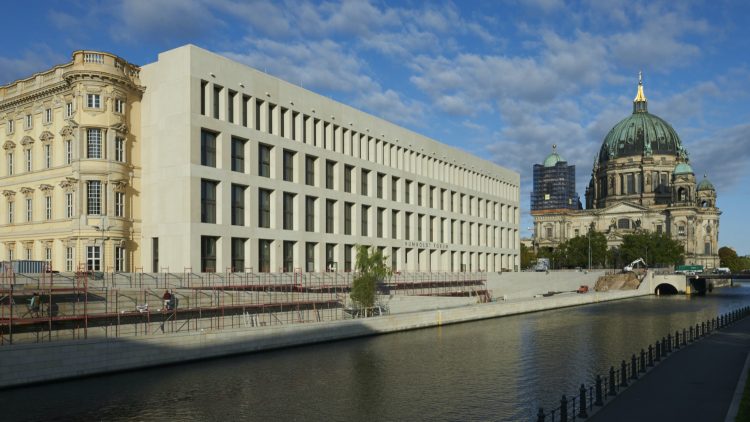
Opening of Exhibitions in the Humboldt Forum in 2020 — 2021
The Humboldt Forum in the rebuilt Berliner Schloss will open in phases from 17 December 2020 — the complete building will only be in use by 2022.
The main exhibitions and museums openings were scheduled as follows but remained close until the building is allowed to accept visitors:
- Geschichte des Ortes / History of the Humboldt Forum Site— from 17 December 2020
- Die Brüder Humboldt / Wilhelm and Alexander von Humboldt — from 17 December 2020
- Nimm Platz! Eine Ausstellung für Kinder / Take a Seat! Exhibition for Children — 3 January to 24 October 2021
- Nach der Natur / After Nature in the Humboldt Laboratory — from 7 January 2021
- Berlin Global — from 16 January 2021
- Schrecklich schön. Elefant — Mensch — Elfenbein / Terribly beautiful. Elephant — Man — Ivory — from 13 May to 24 October 2021
- Ethnologisches Museum and Museum für Asiatische Kunst — from September 2021 (fully from 2022)
An extensive cultural program including discussions, lectures, and performances will enhance the larger exhibitions and events.
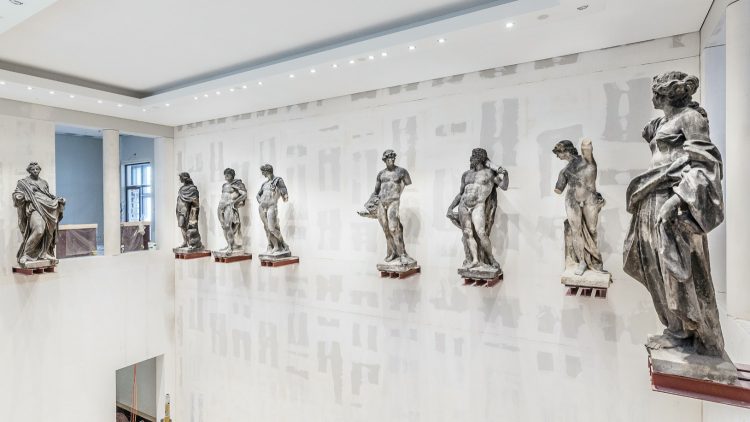
Geschichte des Ortes / History of the Humboldt Forum Site
— from 17 December 2020
Opening the rebuilt Berliner Schloss with an exhibition on the history of the site clearly indicates that this building is more than just the latest building project in Berlin. This relatively small permanent exhibition is spread through the building and includes a few original decorative elements from the original palace. The interior of the rebuilt palace is modern and thus far none of the palace’s show rooms have been reconstructed.
Berlin (originally Cölln) was long a backwater near the edge of the Holy Roman Empire. It only came to some prominence when he Hohenzollern family took control of the Electorate of Brandenburg in 1415 and decided to build a palace in Berlin, despite violent opposition from the locals.
The palace expanded with the growing importance of Brandenburg (and later Prussia). The Renaissance palace was converted into a Baroque complex early in the 18th century. It was enlarger further with the addition of a cupola and chapel in the mid-19th century.
After the end of the monarchy in 1918, it was decided to use the building for cultural and academic institutions. The Schloss survived most of the Second World War but was severely damaged in February 1945.
In 1951, the German Democratic Republic decided to demolish the palace but only got around to replace it with the Palace of the Republic in the 1970s. This “people’s palace” famously housed the East German parliament but also restaurants, a disco, and a bowling alley. This palace was pulled down after the re-unification of Germany and in 2008 it was finally decided to rebuilt the Baroque Schloss facade but with a modern interior to be used for cultural and academic purposes.
Die Brüder Humboldt / Wilhelm and Alexander von Humboldt
— from 17 December 2020
The Humboldt Forum (like Berlin’s most prestigious university) is named after the brothers Wilhelm and Alexander von Humboldt:
- Wilhelm von Humboldt (1767-1835) was a Prussian philosopher, educationalist, diplomat and linguist, who introduced the concept of holistic education that combined arts and sciences together to promote understanding and cultural knowledge.
- Alexander von Humboldt (1769-1859) was a polymath –- a geographer, naturalist and scientific explorer of the Americas, and a proponent of Romantic philosophy and science.
Taking inspiration from the brothers, the Humboldt Forum brings together the sciences, the arts and education, and promotes dialogue between experts and the public on these subjects and more, recognising that forging links between disciplines leads to the holistic knowledge that is needed to tackle the world’s urgent problems.
Nimm Platz! Eine Ausstellung für Kinder
— 3 January to 24 October 2021
The exhibition Take a Seat! is aimed at children from three to ten years. It explains the role of seating in society and different cultures, as a gesture of welcoming, conventions, and rank.
Humboldt Labor / Humboldt Laboratory
— from 7 January 2021
The Humboldt Labor / Humboldt Laboratory is a special exhibition and education space created by the Humboldt-Universität zu Berlin (Humboldt University of Berlin) to explain pressing issues or contemporary responses through natural sciences.
The first project Nach der Natur / After Nature will run for around three years. It explains the history and development of science with themes such as climate change, globalisation, consumption, sustainability, loss of biodiversity and inequality.

Berlin Global
— from 16 January 2021
Berlin Global will be the first large exhibition to open in the Humboldt Forum. It is a co-production by Kulturprojekte Berlin (Cultural Projects Berlin) and the Stadtmuseum Berlin (City Museum Berlin) with a state of the art exhibition with many interactive experiences.
It reveals the essence of Berlin through seven themes: Revolution, Free Space, Boundaries, Entertainment, War, Fashion and Interconnection. Expect it to be big, bold, and beautiful.
Schrecklich schön. Elefant — Mensch — Elfenbein
— 13 May to 24 October 2021
The first special temporary exhibition of the Ethnological Museum and Asian Art Museum (in cooperation with the Natural History Museum Berlin) covers the rather controversial topic ivory. The name schrecklich schön translates to awfully or terribly beautiful.
Humans made their first ivory art works at least 40,000 years ago but today ivory is often more associated with violence, colonization and injustice. The exhibition will include top quality carved ivory while at the same time covering the terrible toll the collection of ivory has on elephant and human populations.
Ethnological Museum and Asian Art Museum
— from September 2021
The absolute cultural highlights in the Humboldt Forum are the Ethnologisches Museum (Ethnological Museum) and the Museum für Asiatische Kunst (Asian Art Museum) that are part of the Staatliche Museen Berlin (Berlin State Museums). These two museums are among the largest and most significant museums of their kind in the world. The museums will party open in September 2021 with the museums likely to be fully open only by early 2022.
The Ethnological Museum (founded in 1873) and the Asian Art Museum (founded in 1906) both trace their origins back to the Brandenburg-Prussian Cabinet of Curiosities in the Berlin Palace. Both museums spent most of the second half of the twentieth century in Dahlem in far western Berlin but now returned to the Berliner Schloss.
The first parts of the museums to open in September 2021 in the west wing include the famous boats and houses from Oceania, buddhist caves from the silk road, art from Japan including a tea house, and part of the Africa collection.
The second parts of the museums in the east wing are likely to only open early 2022 and include items from Latin America and particularly the Amazon region, Khmer art, and the diversity of Islam. (Many historic Islamic art is exhibited in the Pergamon Museum.)
In addition to the large permanent exhibitions, frequent temporary exhibitions and an extensive related events programs are planned.
Visitors Information for the Humboldt Forum in Berlin
Opening Hours
The Humboldt Forum with exhibitions will be open on the following dates — hours not yet confirmed:
The intention is to open the Humboldt Forum from Wednesday to Sunday, closed on Tuesdays but the final hours, or changes due to special hygiene measures have not been confirmed yet.
Tickets for the Humboldt Forum
Ticket prices and possible combination with other Museum Island museums have not been set yet. Tickets will only be available once the museums and exhibitions are opened. Time-slot reservations will be essential.
Admission to the palace itself is free — ticket prices for the museums and exhibitions, if applicable, have not been confirmed yet.
Location of the Humboldt Forum
The Humboldt Forum is on the southern half of Berlin’s famous Museum Island. Bus stop Lustgarten (bus 100, 245) is directly in front of the palace. The closest S-Bahn and U-Bahn statins are Alexanderplatz, although the new Museum Island U-Bahn station is due to open during 2021.
More on the Berlin State Museums (Staatliche Museen zu Berlin):
Note new opening times for many Berlin museums from mid-April 2024. Timeslot reservations are essential only for the Caspar David Friedrich exhibition (until 4 August 2024) but sensible (and sometimes needed in busy periods!) for the Alte Nationalgalerie, Gemäldegalerie, Neue Nationalgalerie, Neues Museum, and Pergamon – Das Panorama. (The Pergamon Museum itself is closed until 2027!). Timeslots are released only a few weeks in advance. Online tickets are available from GetYourGuide, which seems to have timeslots available when SMB has already sold out. Many passes and multi-museum tickets are again sold (Kulturforum / Museums Island). Individual museum ticket prices range from €8 to €14 (€20 for special exhibitions). Online tickets are skip-the-line — go directly to the gallery entrance to scan the code but pick up free audioguides first.
For more general information on the Berlin State Museums:
- Top National Museums and Galleries in Berlin (brief overview)
- Berlin State Museums: What Is Seen Where? (a short description of the collections in the different museums)
- Opening Hours of Berlin State Museums (2024) — major changes from mid-April 2024!
- Ticket Prices for Berlin State Museums (prices for museums, temporary exhibitions, combination tickets, online time-slot reservations). Buying online from GetYourGuide is easy. A ticket with a QR or bar code is scanned directly at the entrance — no need to pass by the ticket desk (but pick up the free audio guide before entering).
- Save with the Berlin Museum Pass – 30 museums (including all the SMB museums) in three days for €32 – a fantastic savings deal.
- Staatliche Museen zu Berlin (official website in German & English).
News & Temporary Exhibitions:
- 2024: Overview of Top Berlin Exhibitions in 2024, Caspar David Friedrich in the Alte Nationalgalerie (tickets are selling out fast!), Frans Hals in the Gemäldegalerie, Neue Nationalgalerie (20th-century art) Hamburger Bahnhof Contemporary Art, Kupferstichkabinett (Prints and Drawings), and Photography Museum.
- Museums closed in 2024: The Pergamon Museum is closed until 2027 (some sculptures are on display in Das Panorama), the Museum Berggruen is closed until 2025 (much of its collection is traveling the world), the permanent collection of the German History Museum (Zeughaus) is closed but temporary exhibitions continue in the Pei Building.
More Museum Reviews and Museum-Specific Information:
- Alte Nationalgalerie with Caspar David Friedrich paintings (2024 special exhibition).
- Altes Museum with Greek, Etruscan, and Roman art.
- Ethnological and Asian Art Museums in the Humboldtforum.
- Friedrichswerdersche Kirche (free admission) with a collection of 19th-century German sculptures.
- Gemäldegalerie with its collection of German and Dutch Old Masters and Italian paintings.
- Kunstgewerbemuseum (Decorative Arts).
- Musical Instruments Museum near the Berliner Philharmonie.
- Neue Nationalgalerie — 20th-century art.
- Neues Museum with bust of Nefertiti.
- Pergamon Museum with Ishtar Gate — the whole Pergamonmuseum is closed from October 2023 until 2027. Some Greek sculptures are shown in the
- Pergamon Museum Panorama Exhibition with Asisi panoramic painting and Greek statues.
- Photography — Helmut Newton collection and historic photos.
Previous Temporary Exhibitions:
- 2023: Top Special Temporary Exhibitions in 2023 — overview, in the Kulturforum, in the Neue Nationalgalerie, on Museum Island, and the Museum of Photography.
- 2022: Top Special Temporary Exhibitions in 2022 — overview, in the Kulturforum (David Hockney), in the Neue Nationalgalerie, on Museumsinsel, Hamburger Bahnhof contemporary art, and the Museum of Photography.
- 2021: Top Special Temporary Exhibitions in 2021 — including the reopening of the Neue Nationalgalerie, as well as the Ethnological and Asian Art Museums in the Humboldt Forum.
- 2020: Highlights, in Kulturforum, on Museum Island, in the Hamburger Bahnhof, smaller museums, and the opening of the Humboldt Forum.
